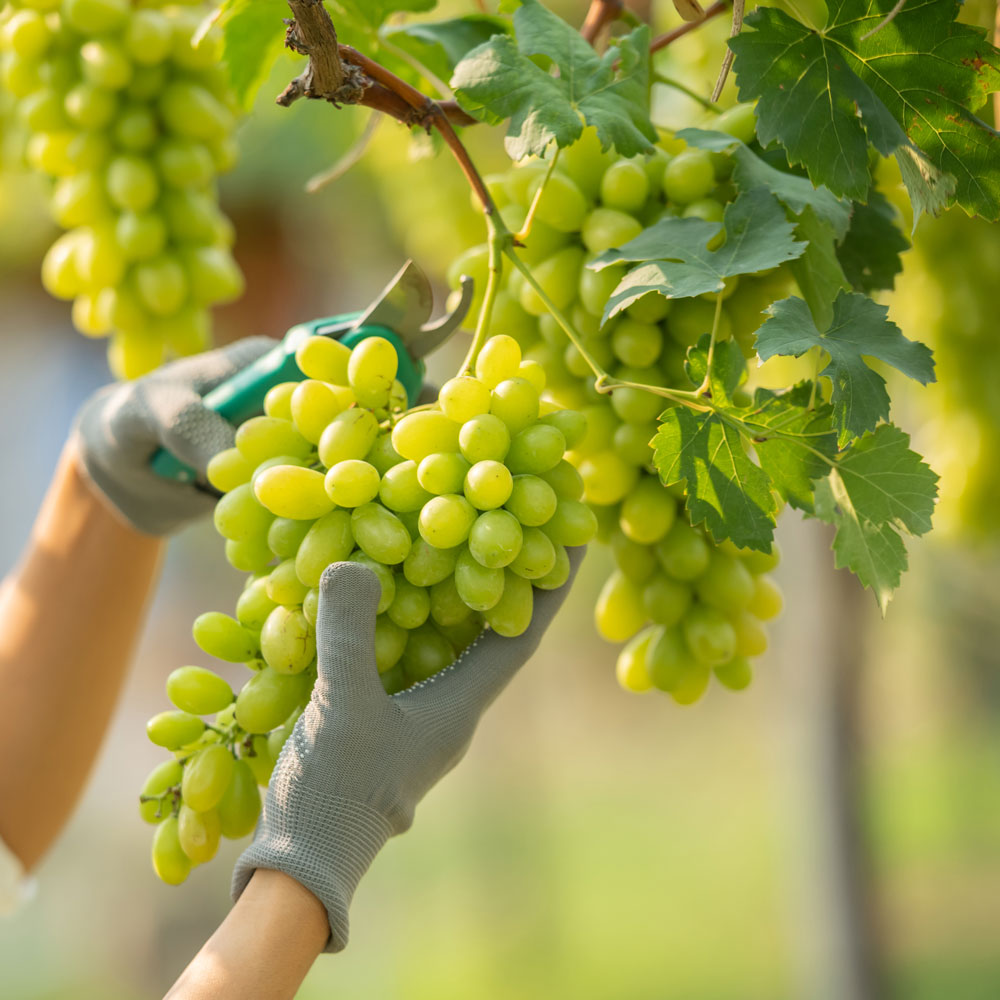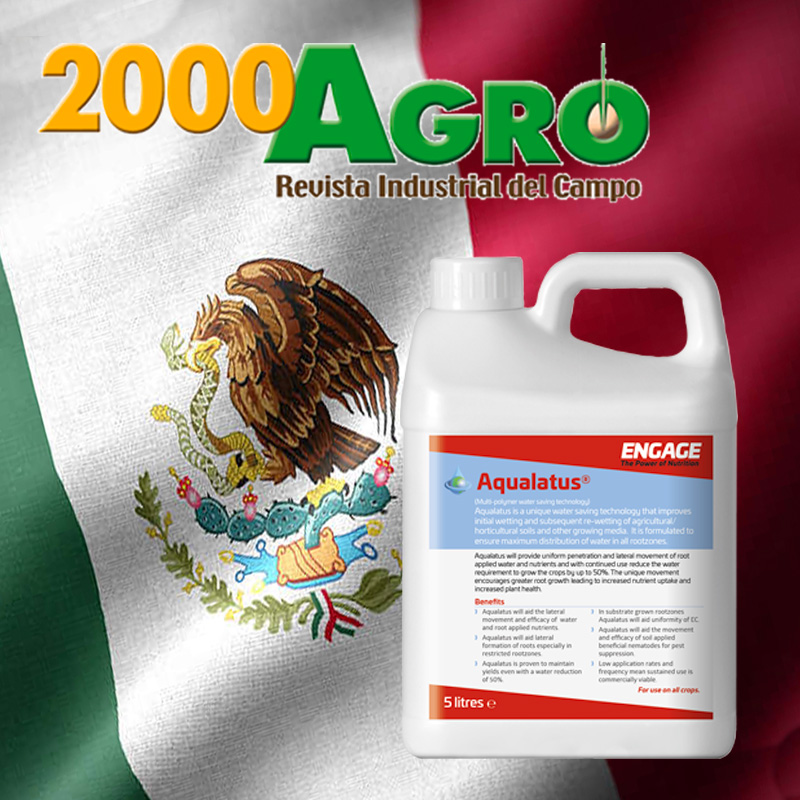Spring has been tumultuous in terms of weather to say the least, with the coldest April in 60 years, and this is having detrimental effects on nutrient uptake as cold roots and low transpiration affect growth.
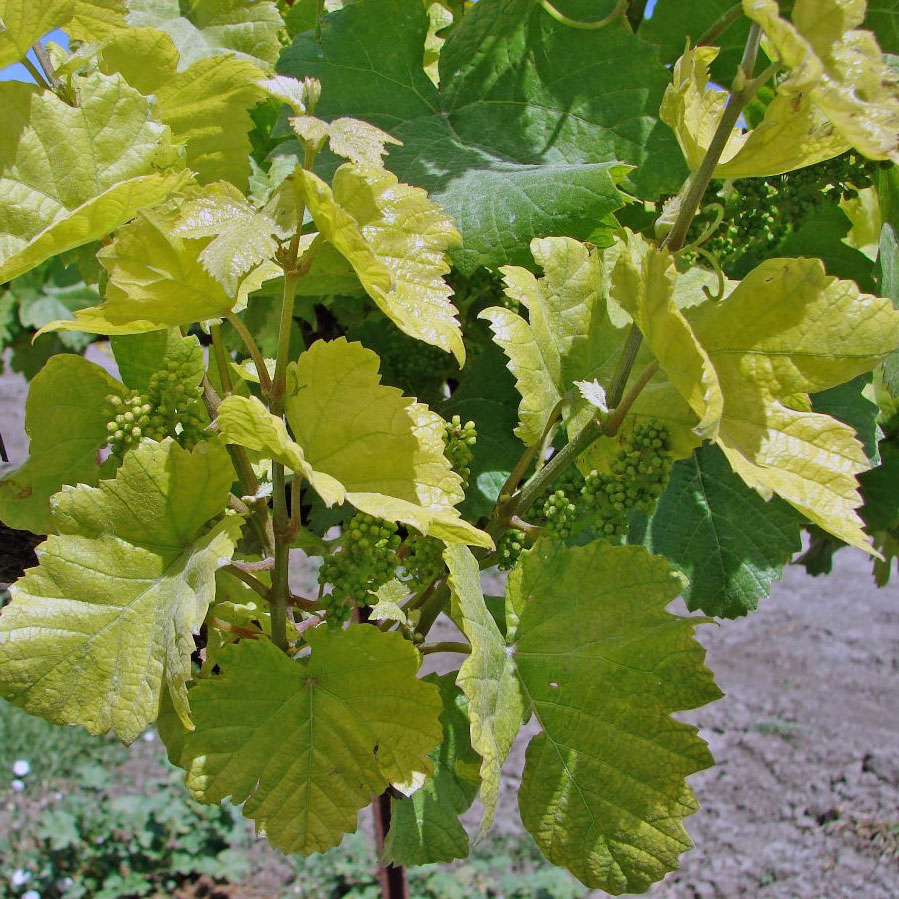
Having an increased understanding and knowledge of crop nutrients and the application in the way that each specific nutrient behaves is crucial at this stage, as a deficiency is a signal given to us by the plant to help us ‘bring it back’ to its normal photosynthetic equilibrium from its state of obvious distress – which diminishes the vines’ ability to work from budburst through to its usual spring processes. Therefore, we should never underestimate a deficiency – as the vines’ growth parameters and resistance to infection or predation will be compromised.
There are however deficiencies that initially, are not as easy to see or identify, but which equally limit the potential qualitative development of the vines and ultimately the grapes. In soils these this deficiencies not so frequently observed and are often underestimated, yet may have profound effects as without them, photosynthesis becomes the limiting factor. In fact, during cold springs some symptoms are concurrent and/or maybe mistaken for each other or even lack of nitrogen.
These deficiencies are Iron and Manganese. Both play a pivotal role in photosynthesis and are a major part of chlorophyll production, leaf expansion and are important components of the electron transport chain – the final link in the photosynthetic process, and of different enzymatic systems.
So, what are the benefits of ensuring each nutrient is maintained at optimal levels for early growth?
Iron is essential for many plant functions. It optimises chlorophyll development and its function. Its availability supports energy transfer within the plant and functions in plant respiration and plant metabolism which are so important for overall crop health. In vines, it is important for nitrogen fixation which will directly affect growth if compromised.
Its deficiency symptoms are sometimes difficult to confirm as similarly to many nutrient deficiencies it expresses itself as chlorosis or a yellowing of the leaf. To identify it look to the growing point as iron being a poor mobility nutrient will always show itself in the newest growth first and if pronounced with reduce chlorophyll so much that the leaf will be light yellow or even white!
How does this compare to manganese which may look very similar in its early deficiency symptoms?
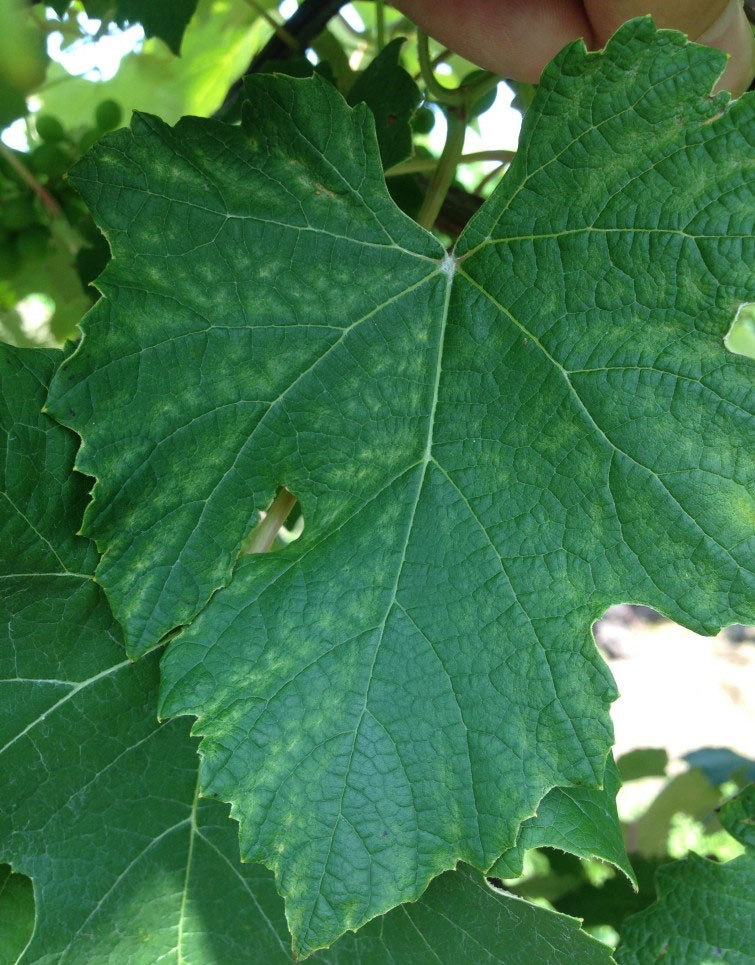
Manganese is hugely involved in photosynthesis, to the point that a deficiency can contribute to low brix levels which is so important yeast nutrition during fermentation of your wine plus directly links to increased insect and disease pressure. Manganese is essential in the process of photolysis of water (where photons split water molecules into hydrogen and oxygen). This process effectively kickstarts the chemistry of photosynthesis and the associated production of glucose for new growth.
Manganese deficiency is mainly encountered during cold wet springs and in alkaline soils. Like iron, it will express itself as interveinal chlorosis however it will be present on the most recent semi matured young leaves as they are first to exhibit the characteristic symptoms of pale green spots around the leaf margin developing into an interveinal mosaic discolouration with prominent green veins. The symptomatic leaves do not form a discoloured edge but progressively reach into the heart of the leaf.
Engage, the innovators in plant nutrition, have developed two advanced technologies to ensure these important nutrients are delivered to vines at the highest level, these are Bio-Chel Fe and MAS-Power Mn.
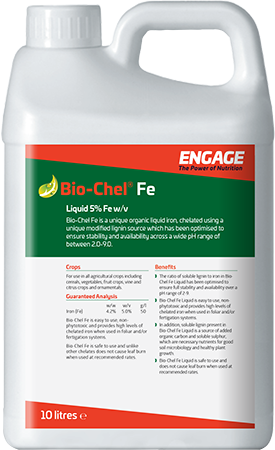
Bio-Chel Fe is a unique organically chelated iron liquid providing 5% fully available iron over a pH range from 2-9 so will sit comfortably in most spray tank conditions or irrigation systems. It has unrivalled leaf safely for a liquid iron the soluble lignin present in chelation of
Bio-Chel Fe Liquid is a source of added organic carbon and support compounds which will support overall vine health.
MAS-Power Manganese is a 15% Mn foliar which comes with proven unique delivery mechanism (mineral assimilation technology) which has been designed to meet deliver manganese rapidly and safely.
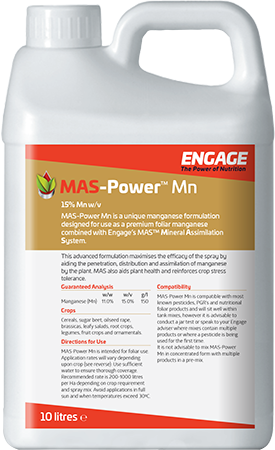
MAS is a technology made from extracted organic bioactive molecules identified in Canada and proven to have many active sites to stimulate pathways associated with nutrient delivery and assimilation. MAS-Power foliar Mn is designed to address the specific nutrient requirement and relieve any abiotic stress the grapevine may encounter, during its critical growth stages. MAS-Power technology is proven to increase foliar nutrient uptake and assimilation therefore levels of application can be lower without compromising efficacy. The Bio-Pack within MAS-Power also improves the metabolism in the vine and will with continued use lead to an improved root to shoot ratio, therefore promoting overall vine health and resistance to stress.
Contact Engage…
For more information about our products or interested in learning more about our services?

